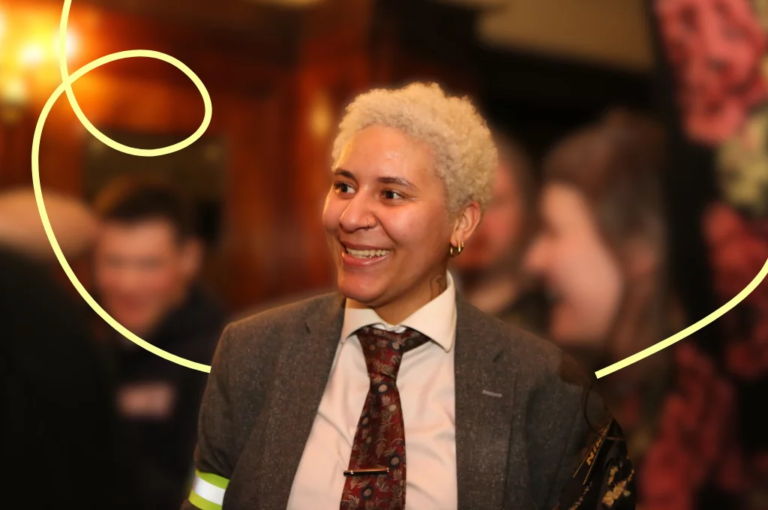Content warning: Suicide, racism
I first tried to kill myself when I was a teenager. From that point through my teenage years and throughout my 20s, I would suffer from various mental health difficulties on a grand scale, staring death in the face one too many times. When you experience that and come through the other side, you start to think about the situations you’ve been in and if society was different for black people, others like me wouldn’t see the dim bright lights of the hospital. .
I was born in the mid 90’s to a 2nd generation Windrush. I was born right on the cusp of being part of the millennial generation that remembers Myspace and sends daily love to my Bebo friends. My dad’s side is Jamaican and my mom’s dad is from St. Vincent and the Grenadines (my nan is Finnish). I grew up knowing that being black is something beautiful and something to be proud of. Family barbeques with reggae billowing on the decks, rice peas, curry goat and fried chicken galore.
I wasn’t born ashamed of being Black, so why did I grow up wishing I lived in a different body over time?
From small to ‘other’ involuntarily. Some teachers just decided they didn’t like me. Someone would randomly stop talking while teaching, look at me and accuse me of trying to break the keyboard (I didn’t even do a damn thing!). Someone would call my mom saying they scared me, kid because I was a “big girl.” One would come up to me, get up in my face so strongly that I could feel the warmth of her breath and tell me that “I’m not going to get anywhere in life” and one would frightfully bully me to the point of no return – I was done with life, and I was only a child.
While these instances may not seem like much to some, they all translate into racist experiences. You are treating me differently for no good reason other than you have formed a stereotype about me. Plus, I watched the boys entertain my white friends while I struggled to find my identity. I wore hot pants to Oceana because I wanted to be loved, but unfortunately a lot of my sexual experiences when I was younger were non-consensual, with boys saying it didn’t happen because they “would never date someone like me.”
All of this started the snowball of my anger and self-hatred.
Everyone else seemed to hate me, so why shouldn’t I? I didn’t have words for it at the time, but I was so lonely and depressed and it carried over into my life. I couldn’t get up for school, cried myself to sleep and wondered why I was different. I could not, at that age, understand the injustice. And to be honest, even when you’re an adult, things haven’t exactly changed. But I began to understand what was happening and why.
As an adult, I began to see the same dynamic play out in the workplace as well as in my friendships and romantic relationships. I began to gain more knowledge about racism when I began to seek it out by reading, talking openly with white and black friends, and finding community. But after the killing of George Floyd I started talking about my past experiences publicly. I began to understand activism and find my voice. Suddenly your voice became powerful and helpful to others only it seemed to frustrate some white people more, to the point where they became more openly racist than before, which just solidified how systemic racism is. Ultimately, it always comes down to people not listening, being defensive, not reflecting on their own behavior and blaming you for everything. Every black man I talk to has a similar, if not the same, story. You talk, you shut down and people make decisions for you instead of you.
This pattern repeats itself over and over until you start to think you’re crazy – you’re not.
And it is this cycle that has ultimately been so detrimental to my mental health. When you’re a gasser, your emotions get pushed to the side, you start to lose hope. It feels like you’re struggling to be heard and sometimes you just have to accept that some people will never understand your experience. But the difference is that some people try to understand and take action to do better, instead of getting defensive and never changing their perspective – it’s these people who have made me realize that change is possible.
I’m turning 30 soon and I’ve been able to think a lot about my relationships and how racism can play out in a person’s life, but also recognize the intersectional levels within communities. Luckily I did a lot of healing, I mean… a lot! Can you blame me? And now I know there’s nothing wrong with me – I’m pretty awesome! My experiences have fueled my work in advocating for change. I have an amazing support network around me, lots of people who are actively anti-racist and I’ve slowly started to see those who unfortunately aren’t and it’s time to let that dynamic go. It’s been hard, but finding peace and protecting yourself is paramount to your mental health, and I look forward to continuing to meet people in life who want to lift you up and have your back when it comes to racism, instead of download, ignore it and pretend it doesn’t exist. Listening can save the life of someone like me, get the job done, be a true ally and let communities speak.
Get support
If you are worried about your mental health or the mental health of someone else, there are many places that can offer you help and support. You don’t need to diagnose, you don’t even need to know what exactly is wrong. Whenever you’re ready to talk to someone, you can.
